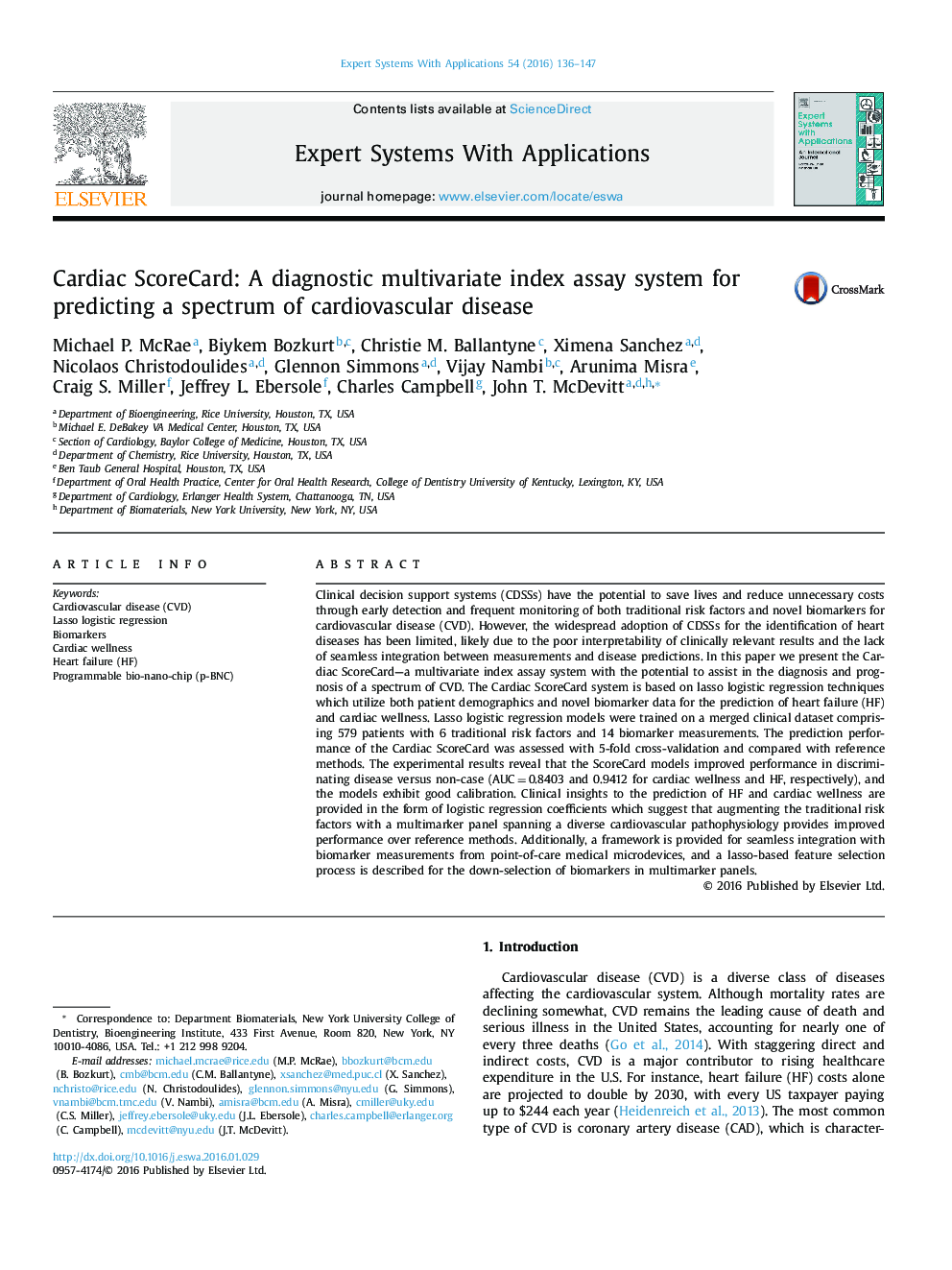| Article ID | Journal | Published Year | Pages | File Type |
|---|---|---|---|---|
| 383261 | Expert Systems with Applications | 2016 | 12 Pages |
•We developed a Cardiac ScoreCard based on a multivariate index assay.•Using a single chip for multiple cardiac applications reduces cost and time.•Lasso logistic regression performs shrinkage and selection in multimarker models.•Biomarkers and traditional risk factors predict cardiac wellness and heart failure.
Clinical decision support systems (CDSSs) have the potential to save lives and reduce unnecessary costs through early detection and frequent monitoring of both traditional risk factors and novel biomarkers for cardiovascular disease (CVD). However, the widespread adoption of CDSSs for the identification of heart diseases has been limited, likely due to the poor interpretability of clinically relevant results and the lack of seamless integration between measurements and disease predictions. In this paper we present the Cardiac ScoreCard—a multivariate index assay system with the potential to assist in the diagnosis and prognosis of a spectrum of CVD. The Cardiac ScoreCard system is based on lasso logistic regression techniques which utilize both patient demographics and novel biomarker data for the prediction of heart failure (HF) and cardiac wellness. Lasso logistic regression models were trained on a merged clinical dataset comprising 579 patients with 6 traditional risk factors and 14 biomarker measurements. The prediction performance of the Cardiac ScoreCard was assessed with 5-fold cross-validation and compared with reference methods. The experimental results reveal that the ScoreCard models improved performance in discriminating disease versus non-case (AUC = 0.8403 and 0.9412 for cardiac wellness and HF, respectively), and the models exhibit good calibration. Clinical insights to the prediction of HF and cardiac wellness are provided in the form of logistic regression coefficients which suggest that augmenting the traditional risk factors with a multimarker panel spanning a diverse cardiovascular pathophysiology provides improved performance over reference methods. Additionally, a framework is provided for seamless integration with biomarker measurements from point-of-care medical microdevices, and a lasso-based feature selection process is described for the down-selection of biomarkers in multimarker panels.
